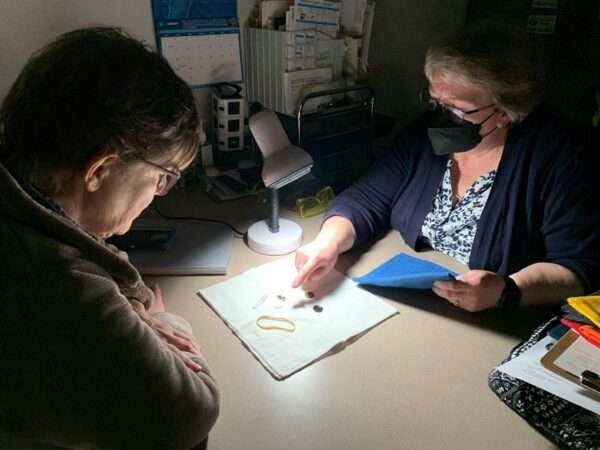
No matter where you live in Wisconsin, a vision services provider is within reach. That said, available services vary from area to area and from agency to agency. “Each agency offers a certain type of assistance,” says Education and Vision Services Director Amy Wurf of the Council. “Depending on where you are, you may not have access to all the resources available to someone living in a more urban area.” That means some people may have to travel. Amy suggests always checking with the local eye care provider before assuming a service may only be offered in a larger city or town.
In this article we provide a look at the vision services landscape in Wisconsin–a picture that includes government agencies, medical settings, educational options and nonprofit providers.
The Office for the Blind and Visually Impaired (OBVI) is part of the Wisconsin Department of Health Services. OBVI provides in-home vision rehabilitation services for adults with vision loss. Because OBVI has staff throughout the state, those seeking services can reach out to their regional vision rehabilitation specialist to schedule a home visit or leave a message at OBVI’s toll free phone number, 888-879-0017.
If you live within a reasonable distance of Madison or Milwaukee, you have other options for vision rehabilitation and related services from independent nonprofit organizations. Adults in the Madison vicinity can access the suite of services offered by the Vision Services team here at the Wisconsin Council of the Blind & Visually Impaired. We can provide low vision evaluations, in-home vision rehabilitation, orientation and mobility training, and access technology instruction. Contact us at 608-255-1166 to speak to our staff and discuss how we can work together.
If you are in the Milwaukee area, Vision Forward is an excellent resource for both youth and adults, offering a similar range of services. You can reach Vision Forward at 414-615-0100.
The Wisconsin Department of Workforce Development’s Division of Vocational Rehabilitation (DVR) is another valuable resource. DVR’s role is to:
- Help people with disabilities find a job, keep a job or get a better job.
- Work with businesses to recruit and retain workers with diverse abilities.
- Provide a wide array of resources assisting in everything from assistive technology to work incentives.
- Help with accommodations on the job.
DVR also offers a suite of educational tools for young people with vision impairment. They work with high school students who are transitioning to postsecondary education and employment. In partnership with the Department of Public Instruction (DPI) and the Department of Health Services (DHS), they work with the student and community resources to provide a smooth transition from school to the world of work and community services.
Are you searching for an eye doctor or a different physician? The Vision Council Foundation has a search tool that enables you to find nearby clinicians by entering your zip code.
The American Printing House for the Blind’s mission is to empower people toward greater independence and lifelong success by providing free information and resources to children, parents, job seekers and other adults who are blind or have low vision. Their website features:
- Information on self-awareness, career exploration, finding employment, interviewing and maintaining employment.
- Support and resources for families of children who are blind or low vision.
- Tips and resources on living with blindness or low vision, information on eye diseases, and a free, searchable directory of services.
Wisconsin veterans with a vision impairment have three regional veterans’ hospitals to choose from. Madison’s William S. Middleton Memorial Hospital and Milwaukee’s Clement J. Zablocki Veterans Medical Center offer the most complete array of vision services.
Insurance coverage for eye care is varied and sometimes frustratingly limited. The Council and other advocates continue to work to address this situation. Low vision eye exams are covered under Medicare. Some private insurance plans cover appointments with medical providers specializing in low vision, but related products like magnifiers are rarely covered.
Amy says that for many clients, it’s a good idea to consult with a social worker to find solutions for billing. It often takes a lot of persistence and self-advocacy to find solutions. Your local Aging and Disability Center (ADRC) can help with applying for programs and benefits, including publicly funded long-term care.
“It may take some effort and research, but good services are out there,” Amy says. She adds that often the best form of help comes from the people right there at the front desk of your doctor’s office or senior center. “You never know–that person at the front desk may have the nugget of information that is exactly what you need,” says Amy. “We’re all in this together.”

